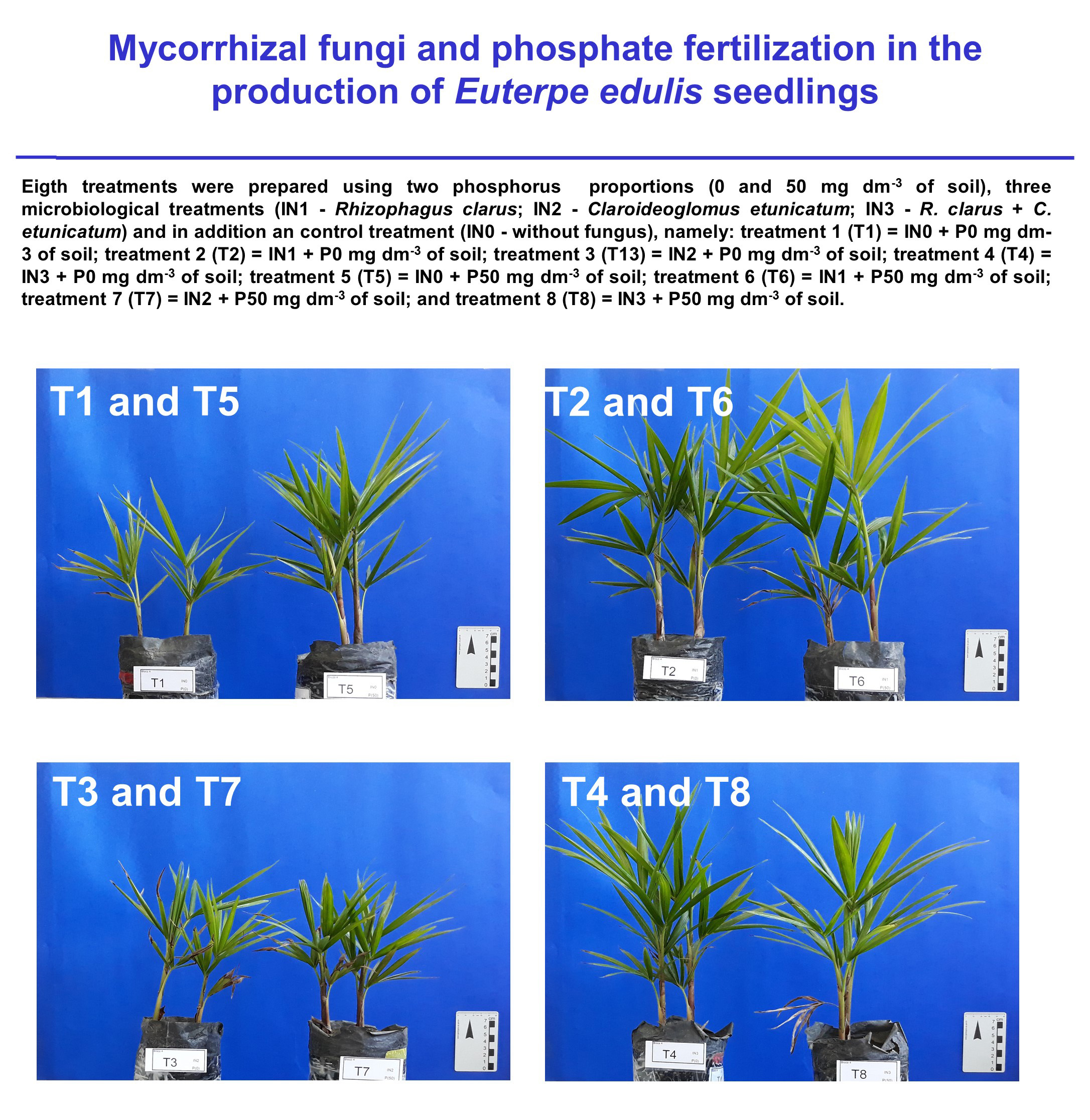Mycorrhizal fungi and phosphate fertilization in the production of Euterpe edulis seedlings
DOI:
https://doi.org/10.48162/rev.39.045Keywords:
Euterpe edulis, mycorrhizal fungi, plant growth, mineral nutrition, seedling qualityAbstract
The present study evaluated the effect of arbuscular mycorrhizal fungi (AMF) inoculation on growth and nutrition of Euterpe edulis seedlings, supplemented or not with phosphate fertilization. The experiment was conducted in a greenhouse. The randomized block design, consisted of a 3x2 factorial arrangement and 4 replicates, with two phosphorus doses (0 and 50 mg dm-3 of soil), two microbiological treatments (Rhizophagus clarus; laroideoglomus etunicatum; R. clarus + C. etunicatum) and control (without fungus). Sowing and inoculation occurred concurrently in 2 kg plastic bags. Height, collar diameter, leaf area, dry shoot mass, macronutrient content and mycorrhizal colonization percentage were determined after 226 days. Regarding mycorrhizal colonization percentage, R. clarus resulted significantly beneficial for the production of E. edulis seedlings. In the absence of phosphate fertilization, R. clarus and mixed inoculum increased all biometric variables and macronutrient contents in seedlings. Therefore, it is concluded that AMF inoculations provide beneficial effects for growth and nutrition of E. edulis seedlings, resulting in more vigorous plants at a low-cost strategy.
Highlights:
- Rhizophagus clarus resulted significantly beneficial for the production of E. edulis seedlings and in the absence of phosphate fertilization, and mixed inoculum ( clarus + Claroideoglomus etunicatum) increased all biometric variables and macronutrient contents in seedlings.
- The AMF inoculations provide beneficial effects for growth and nutrition of E. edulis seedlings, resulting in more vigorous plants at a low-cost strategy.
- The AMF, a biological agent of mutualistic associations with plants, constitutes an innovative approach to sustainable agriculture, contributing to increase plant survival rate, a key-factor for the successful reintroduction and conservation of E. edulis, as well as for its commercial exploitation.

Downloads
Published
Issue
Section
License
Copyright (c) 2018 Revista de la Facultad de Ciencias Agrarias UNCuyo

This work is licensed under a Creative Commons Attribution-NonCommercial-ShareAlike 3.0 Unported License.
Aquellos autores/as que tengan publicaciones con esta revista, aceptan las Políticas Editoriales.


